Automotive
Trudeau must repeal the EV mandate
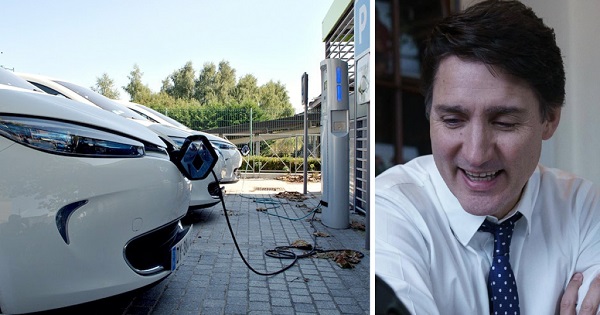

Last Monday, Transport Canada released a bombshell statement, announcing that the Trudeau government’s program granting a $5,000 rebate to Canadians purchasing an Electric Vehicle (EV) had run out of money and would be discontinued, “effective immediately.” This followed a prior announcement from the government of Quebec that they would be suspending their own subsidy, which had amounted to $7,000 per EV purchased.
This is, of course, a game changer for an industry which the Trudeau government (as well as the Ford government in Ontario) has invested billions of taxpayer dollars in. That’s because, no matter the country, the EV industry is utterly dependent upon a system of carrots and sticks from the government, in the form of subsidies and mandates.
EVs have remained notably more expensive than traditional Internal Combustion Engine (ICE) vehicles, even with those government incentive programs. Without them the purchase of EVs becomes impossible for all but the wealthiest Canadians.
Which is fine. Let the rich people have their toys, if they want them. Though if they justify the expense by saying that they’re saving the planet by it, I may be tempted to deflate them a bit by pointing out that EVs are in no way appreciably better for the environment than ICE vehicles, how all the lithium, nickel, cobalt, manganese, aluminum, copper, etc, contained in just one single EV battery requires displacing about 500,000 lbs of earth. Mining these materials often takes place in poorer countries with substandard environmental regulations.
Moreover, the weight of those batteries means that EVs burn through tires more quickly than gas-and-diesel driven vehicles, and wear down roads faster as well, which among other issues leads to an increase in particulate matter in the air, what in the old days we referred to as “pollution.”
That is a potential issue, but one that is mitigated by the fact that EVs make up a small minority of cars on the road. Regular people have proved unwilling to drive them, and that will be even more true now that the consumer subsidies have disappeared.
Of course, it will be an issue if the Trudeau Liberals get their way. You see, Electric Vehicles are one of the main arenas in their ongoing battle with reality. And so even with the end of their consumer subsidies, they remain committed to their mandates requiring every new vehicle purchased in Canada to be electric by 2035, now just a decade away!
They’ve done away with the carrots, and they’re hoping to keep this plan moving with sticks alone.
This is, in a word, madness.
As I’ve said before, the Electric Vehicle mandate is a terrible policy, and one which should be repealed immediately. Canada is about the worst place to attempt this particular experiment with social engineering. It is famously cold, and EVs are famously bad in the cold, charging much slower in frigid temperatures and struggling to hold a charge. Which itself is a major issue, because our country is also enormous and spread out, meaning that most Canadians have to do a great deal of driving to get from “Point A” to “Point B.”
Canada is sorely lacking in the infrastructure which would be required to keep EVs on the road. We currently have less than 30,000 public charging stations nationwide, which is more than 400,000 short of Natural Resources Canada’s projection of what we will need to support the mandated total EV transition.
Our electrical grid is already stressed, without the addition of tens of millions of battery powered vehicles being plugged in every night over a very short time. And of course, irony of ironies, this transition is supposed to take place while our activist government is pushing us on to less reliable energy sources, like wind and solar!
Plus, as I’ve pointed out before, the economic case for EVs, such as it was, has been completely upended by the recent U.S. election. Donald Trump’s victory means that our neighbors to the south are in no immediate danger of being forced to ditch gas-and-diesel driven cars. Consequently, the pitch by the Trudeau and Ford governments that Canada was putting itself at the center of an evolving auto market has fallen flat. In reality, they’ve shackled us to a corpse.
So on behalf of my fellow Canadians I say, “Thank you,” to the government for no longer burning our tax dollars on this particular subsidy. But that isn’t even half the battle. It must be followed through with an even bigger next step.
They must repeal the EV mandate.
Dan McTeague is President of Canadians for Affordable Energy.
Automotive
New federal government should pull the plug on Canada’s EV revolution

From the Fraser Institute
During his victory speech Monday night, Prime Minister Mark Carney repeated one of his favourite campaign slogans and vowed to make Canada a “clean energy superpower.” So, Canadians can expect Ottawa to “invest” more taxpayer money in “clean energy” projects including electric vehicles (EVs), the revolutionary transportation technology that’s been ready to replace internal combustion since 1901 yet still requires government subsidies.
It’s a good time for a little historical review. In 2012 south of the border, the Obama administration poured massive subsidies into companies peddling green tech, only to see a vast swath go belly up including Solyndra, would-be maker of advanced solar panels, which failed so spectacularly CNN called the company the “poster child for well-meaning government policy gone bad.”
One might think that such a spectacular failure might have served as a cautionary tale for today’s politicians. But one would be wrong. Even as the EV transition slammed into stiff headwinds, the Trudeau government and Ontario’s Ford government poured $5 billion in subsidies into Honda to build an EV battery plant and manufacture EVs in Ontario. That “investment” came on top of a long list of other “investments” including $15 billion for Stellantis and LG Energy Solution; $13 billion for Volkswagen (or $16.3 billion, per the Parliamentary Budget Officer), a combined $4.24 billion (federal/Quebec split) to Northvolt, a Swedish battery maker, and a combined $644 million (federal/Quebec split) to Ford Motor Company to build a cathode manufacturing plant in Quebec.
How’s all that working out? Not great.
“Projects announced for Canada’s EV supply chain are in various states of operation, and many remain years away from production,” notes automotive/natural resource reporter Gabriel Friedman, writing in the Financial Post. “Of the four multibillion-dollar battery cell manufacturing plants announced for Canada, only one—a joint venture known as NextStar Energy Inc. between South Korea’s LG Energy Solution Ltd. and European automaker Stellantis NV—progressed into even the construction phase.”
In 2023, Volkswagen said it would invest $7 billion by 2030 to build a battery cell manufacturing complex in St. Thomas, Ontario. However, Friedman notes “construction of the VW plant is not scheduled to begin until this spring [2025] and initial cell production will not begin for years.” Or ever, if Donald Trump’s pledge to end U.S. government support for a broad EV transition comes to pass.
In the meantime, other elements of Canada’s “clean tech” future are also in doubt. In December 2024, Saint-Jérome, Que.-based Lion Electric Co., which had received $100 million in provincial and government support to assemble batteries in Canada for electric school buses and trucks, said it would file for bankruptcy in the United States and creditor protection in Canada. And Ford Motor Company last summer scrapped its planned EV assembly plant in Oakville, Ontario—after $640 million in federal and provincial support.
And of course, there’s Canada’s own poster-child-of-clean-tech-subsidy failure, Northvolt. According to the CBC, the Swedish battery manufacturer, with plans to build a $7 billion factory in Quebec, has declared bankruptcy in Sweden, though Northvolt claims that its North American operations are “solvent.” That’s cold comfort to some Quebec policymakers: “We’re going to be losing hundreds of millions of dollars in a bet that our government in Quebec made on a poorly negotiated investment,” said Parti Québécois MNA Pascal Paradis.
Elections often bring about change. If the Carney government wants to change course and avoid more clean-tech calamities, it should pull the plug on the EV revolution and avoid any more electro-boondoggles.
Automotive
Major automakers push congress to block California’s 2035 EV mandate
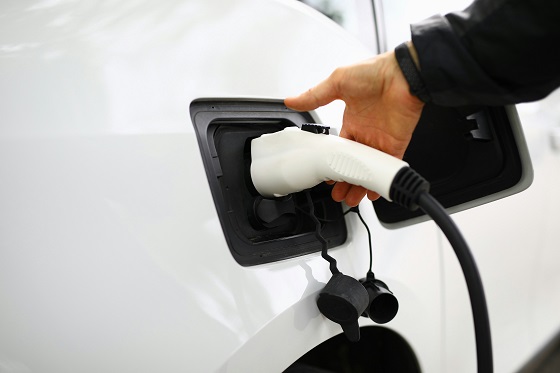
 MxM News
MxM News
Quick Hit:
Major automakers are urging Congress to intervene and halt California’s aggressive plan to eliminate gasoline-only vehicles by 2035. With the Biden-era EPA waiver empowering California and 11 other states to enforce the rule, automakers warn of immediate impacts on vehicle availability and consumer choice. The U.S. House is preparing for a critical vote to determine if California’s sweeping environmental mandates will stand.
Key Details:
-
Automakers argue California’s rules will raise prices and limit consumer choices, especially amid high tariffs on auto imports.
-
The House is set to vote this week on repealing the EPA waiver that greenlit California’s mandate.
-
California’s regulations would require 35% of 2026 model year vehicles to be zero-emission, a figure manufacturers say is unrealistic.
Diving Deeper:
The Alliance for Automotive Innovation, representing industry giants such as General Motors, Toyota, Volkswagen, and Hyundai, issued a letter Monday warning Congress about the looming consequences of California’s radical environmental regulations. The automakers stressed that unless Congress acts swiftly, vehicle shipments across the country could be disrupted within months, forcing car companies to artificially limit sales of traditional vehicles to meet electric vehicle quotas.
California’s Air Resources Board rules have already spread to 11 other states—including New York, Massachusetts, and Oregon—together representing roughly 40% of the entire U.S. auto market. Despite repeated concerns from manufacturers, California officials have doubled down, insisting that their measures are essential for meeting lofty greenhouse gas reduction targets and combating smog. However, even some states like Maryland have recognized the impracticality of California’s timeline, opting to delay compliance.
A major legal hurdle complicates the path forward. The Government Accountability Office ruled in March that the EPA waiver issued under former President Joe Biden cannot be revoked under the Congressional Review Act, which requires only a simple Senate majority. This creates uncertainty over whether Congress can truly roll back California’s authority without more complex legislative action.
The House is also gearing up to tackle other elements of California’s environmental regime, including blocking the state from imposing stricter pollution standards on commercial trucks and halting its low-nitrogen oxide emissions regulations for heavy-duty vehicles. These moves reflect growing concerns that California’s progressive regulatory overreach is threatening national commerce and consumer choice.
Under California’s current rules, the state demands that 35% of light-duty vehicles for the 2026 model year be zero-emission, scaling up rapidly to 68% by 2030. Industry experts widely agree that these targets are disconnected from reality, given the current slow pace of electric vehicle adoption among the broader American public, particularly in rural and lower-income areas.
California first unveiled its plan in 2020, aiming to make at least 80% of new cars electric and the remainder plug-in hybrids by 2035. Now, under President Donald Trump’s leadership, the U.S. Transportation Department is working to undo the aggressive fuel economy regulations imposed during former President Joe Biden’s term, offering a much-needed course correction for an auto industry burdened by regulatory overreach.
As Congress debates, the larger question remains: Will America allow one state’s left-wing environmental ideology to dictate terms for the entire country’s auto industry?
-
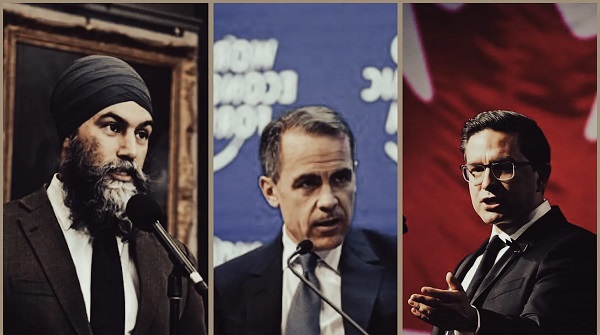
 2025 Federal Election2 days ago
2025 Federal Election2 days agoNDP Floor Crossers May Give Carney A Majority
-

 Alberta12 hours ago
Alberta12 hours agoIt’s On! Alberta Challenging Liberals Unconstitutional and Destructive Net-Zero Legislation
-

 Alberta2 days ago
Alberta2 days agoPremier Danielle Smith hints Alberta may begin ‘path’ toward greater autonomy after Mark Carney’s win
-
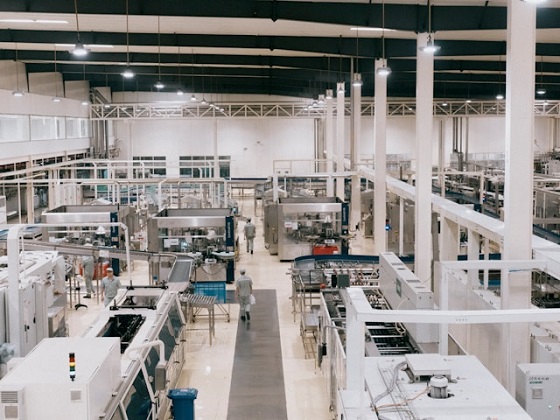
 Business1 day ago
Business1 day agoChina’s economy takes a hit as factories experience sharp decline in orders following Trump tariffs
-

 Automotive1 day ago
Automotive1 day agoNew federal government should pull the plug on Canada’s EV revolution
-

 Mental Health2 days ago
Mental Health2 days agoHeadline that reads ‘Ontario must pay for surgery to give trans resident both penis and vagina: appeal court’ a sign of the times in Canada
-
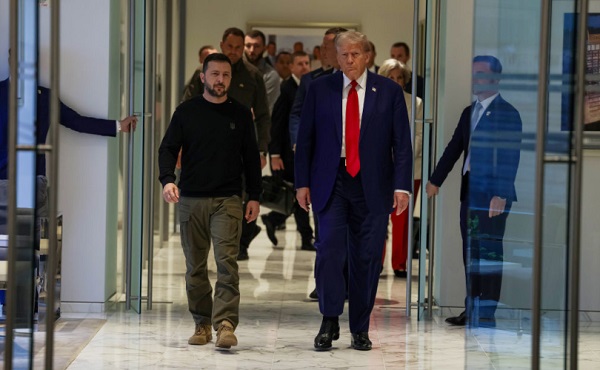
 Business1 day ago
Business1 day agoScott Bessent says U.S., Ukraine “ready to sign” rare earths deal
-

 Alberta2 days ago
Alberta2 days agoPreston Manning: Canada is in a unity crisis



